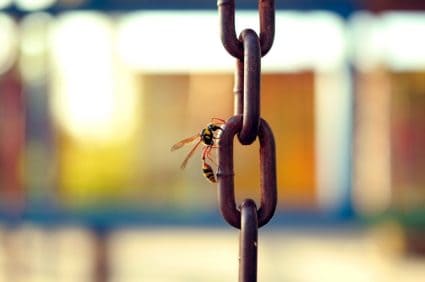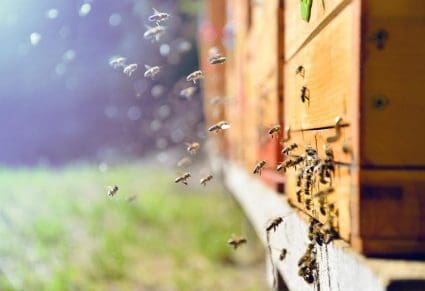
Gardening is a joy for many, providing a peaceful retreat and the satisfaction of nurturing plants to life. However, this joy can quickly turn to frustration when deer and rabbits decide to make your garden their personal buffet. These cute but destructive creatures can wreak havoc on your carefully cultivated plants. Fortunately, there are effective ways to keep deer and rabbits out of your garden without resorting to harmful methods. This comprehensive guide will walk you through several strategies to protect your garden, from physical barriers to repellents, deterrents, and more.
To keep deer and rabbits out of your garden, implement physical barriers like fences, plant deer and rabbit-resistant plants, use repellents, and employ scare tactics or visual deterrents. Encourage natural predators and maintain a clean, well-organized garden. Remember, it may take some trial and error to find the most effective method for your specific situation.
Understanding the Impact of Deer and Rabbits on Your Garden
Before diving into solutions, let’s first understand the impact of deer and rabbits on gardens. Deer are known to feed on a variety of plants, trees, and crops, often causing damage that appears rough or torn. When deer populations are high and environmental conditions are stressful (such as during droughts or harsh winters), damage is more likely to occur.
Rabbits, on the other hand, are notorious for their wide-ranging diet and can kill young trees, shrubs, and herbaceous plants. They often cause damage by clipping stems, buds, and small branches, and by girdling larger trees. Additionally, rabbits can dig holes and scrapes in lawns and flower beds, causing further damage.
Implementing Physical Barriers
One of the most effective ways to keep deer and rabbits out of your garden is through the use of physical barriers. For deer, install a fence that is at least 8 feet high, as deer are adept jumpers. For rabbits, use chicken wire fencing with 1-inch mesh or smaller, buried at least 6 inches below the ground to prevent digging.
Planting Deer and Rabbit Resistant Plants
Another strategy involves planting deer and rabbit-resistant plants. These plants are less appealing to these creatures, often due to strong scents or prickly foliage. Some examples of deer-resistant plants include lambs ear (Stachys), lady’s mantle (Alchemilla), and flowering tobacco (Nicotiana). Rabbit-repellent plants include peonies, foxgloves, and daffodils.
Using Repellents
A variety of commercial and homemade repellents can also be effective in deterring deer and rabbits. Commercial repellents like Liquid Fence and Deer Off work on scent, so deer and rabbits don’t have to take a bite to be repelled. Homemade repellents often involve a mixture of eggs, garlic, and chili peppers, or cayenne pepper, garlic powder, and water. It’s important to reapply repellents periodically, especially after rain, to maintain their effectiveness.
Scare Tactics and Visual Deterrents
Scare tactics can also help keep deer and rabbits at bay. Motion-activated sprinklers, for example, can startle and deter these animals from entering your garden. Visual deterrents like metal pinwheels, rubber snakes, or owl statues can also be effective. However, these deterrents should be moved around frequently to prevent deer and rabbits from becoming accustomed to them.
Encouraging Natural Predators
Allowing pets like dogs or cats to roam in your garden can help deter deer and rabbits. Alternatively, creating habitats for natural predators like foxes, weasels, and hawks can help control rabbit populations.
Maintaining a Clean Garden
Keeping your garden clean and well-organized can also deter deer and rabbits. Trim tall grasses, pick ripe fruits, and discard crops after harvest to make the area less attractive.
Conclusion
Keeping deer and rabbits out of your garden can be a challenge, but with patience and a combination of the strategies outlined above, you can protect your plants and enjoy the fruits of your labor. Remember, it may take some trial and error to find the most effective method for your specific situation, so don’t be afraid to experiment and adjust your strategies as needed.
By maintaining a humane approach and respecting the wildlife that shares our environment, we can enjoy our gardens while coexisting peacefully with our animal neighbors. Happy gardening!
Frequently Asked Questions
What other plants can deter deer from my garden?
Apart from the ones mentioned, other deer-resistant plants include Boxwood (Buxus), Butterfly Bush (Buddleia), Catmint (Nepeta), and Marigold (Tagetes). Remember, “deer-resistant” doesn’t mean deer-proof. Hungry deer may still feed on these plants, particularly in areas with high deer populations.
Are there any other homemade repellents that I can use?
Yes, another common homemade repellent involves using soap. Hang bars of strongly scented soap around the garden. The strong scent can deter deer and rabbits. You can also grate the soap and spread it around plants.
What should I do if the scare tactics don’t work?
If scare tactics aren’t working, it may be because the deer and rabbits have become accustomed to them. Try changing the type of scare tactic used, or combine them with other methods mentioned in the post like repellents or physical barriers.
How can I create a habitat for natural predators?
To attract natural predators, provide food, water, and shelter sources. For example, bird feeders can attract birds of prey, while log piles and tall grasses can provide habitats for foxes and weasels. However, be mindful that these predators can also pose risks to pets and other desirable wildlife.
How often should I clean my garden to deter deer and rabbits?
Regular garden maintenance is key. Try to do a thorough clean-up at least once a week, picking up fallen fruits and vegetables, trimming tall grasses, and removing any other potential food sources. More frequent clean-ups may be necessary during peak growing seasons.











